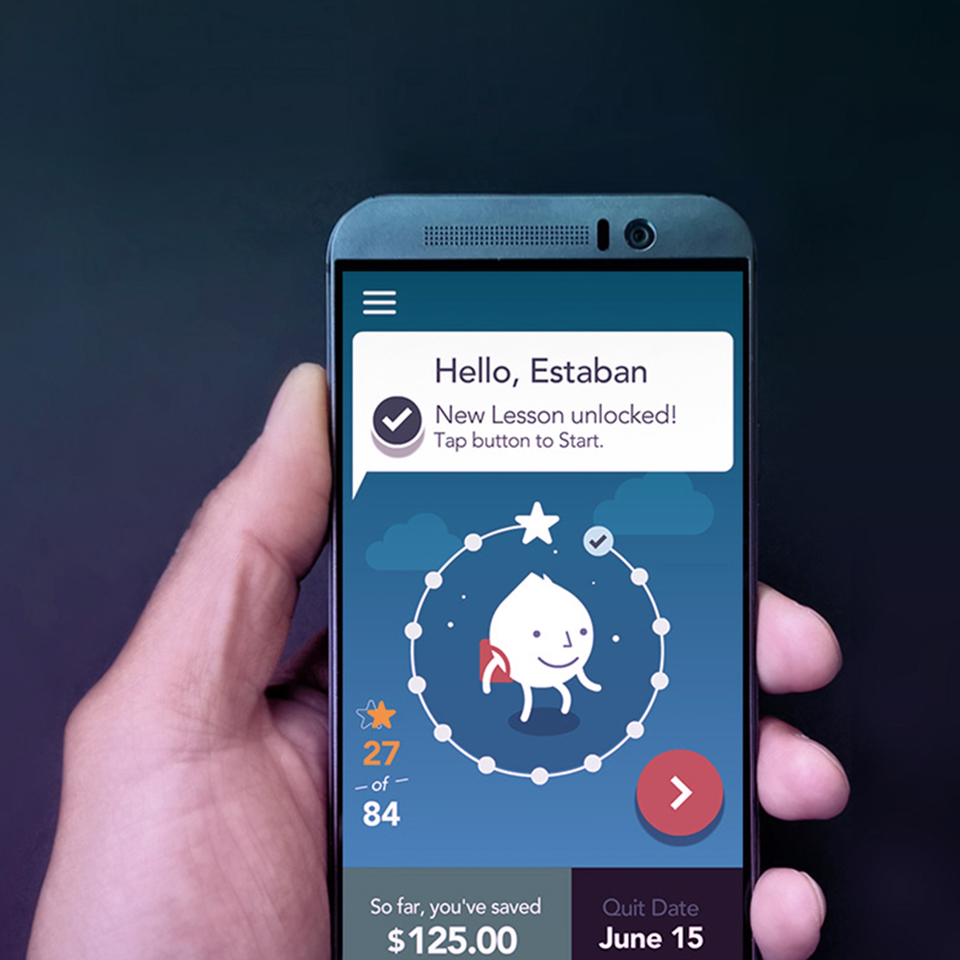×

client success stories
The first smoking cessation application for the seriously mentally ill
 3 min read
3 min read
Healthcare
End-to-end mobile application design, research and healthcare app development
While the rates of smoking have reduced for the general population over the last 50 years, up to 80% of people with serious mental illness (SMI) are still smokers. This drastically underserved population, whose mental and behavioral diagnoses range from schizophrenia to chronic major depression, is estimated to smoke 45% of all cigarettes consumed in the United States. Out of the 530+ smoking cessation applications currently in-market, none directly address the unique needs of the SMI community, and only two have been tested with users, and none with SMI.
Research shows that 70% of the SMI population has some form of mobile device or direct access to the internet. Dr. Roger Vilardaga of Duke University (formally with the University of Washington) believed that a clinically supported healthcare mobile app could provide around-the-clock patient access and support. With a grant from the National Institute on Drug Abuse secured, Dr. Vilardaga partnered with Smashing Ideas, the design and innovation arm of Zoreza Global, to design and build a mobile application that teaches the SMI community the tools they need to quit smoking, based on a new behavioral therapy approach called Acceptance Commitment Therapy (ACT).
Next came the healthcare application development phase. With the physical and behavioral limitations of the user group playing a critical role in the digital experience, the healthcare app was designed with a muted color palette to lessen sensitivity to over-stimulation, buttons were created instead of swiping to account for users with pharma-induced tremors, and simple illustrations conveyed complex, abstract concepts. Through progressive disclosure, the experience guides the user with mental illness along a visual path to track progress, participate in multifaceted exercises throughout the duration of the journey, and plan for future success in becoming cigarette free. Each point in the journey provides them with positive reinforcement and lessons in which they’re able to understand their urges, rather than the standard approach of jumping straight into quitting, providing increased motivation to continue. Users are also provided immediate access to a pre-designated quit coach, via the mobile application.
As the user moves through the actual quitting process, they track:

What began as 200 hours of patient testing with simple paper prototypes has progressed into a high-fidelity healthcare mobile app that initially underwent rigorous National Institute of Health funded user testing through the University of Washington and Harborview Medical Center. Now at Duke University, Dr. Vilardaga is conducting a second phase of randomized clinical trials.